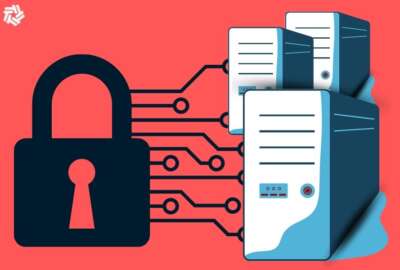

With the advent of 5G nationwide, local governments have the opportunity to reimagine — perhaps jump-start — smart city initiatives. Learn a few tips and...
“The blending of the Internet of Things and 5G connectivity has the potential to not only improve the reliability of services, but also the cost structure, as cities become more efficient,” said Mark McDiarmid, senior vice president of radio network engineering and development for T-Mobile.
That said, “budgets remain tight for many local governments and forms the lens through which cities view and approach their smart city initiatives,” added Pat Watkins, vice president of partner solutions and IoT for T-Mobile.
“Given enough time and money, you can solve anything, but that’s not the world we’re living in right now — especially in cities,” she said. “With every single dollar they spend, cities have to think about the efficiencies that they’re driving.”
We talked with McDiarmid and Watkins about how cities can take advantage of 5G to implement smart city initiatives, even in a world of flat budgets. They shared three tips.
Watkins suggests that city leaders think about prioritizing goals and identify projects that would have the greatest impact on the community to help maximize budget.
She also recommends thinking about new business models for making investments in smart city projects. For instance, could a kiosk or digital signage that displays up-to-the-minute bus information also display local advertising?
“Creative thinking is going to have to happen to create an environment where change can prosper in a meaningful and fiscally responsible way,” Watkins said. “An investment in IoT can lead to greater economic development and positive outcomes for citizens.” Data gathered from that digital signage, for example, could be used to guide future initiatives, like updates to bus routes, which could improve the frequency of on-time arrivals in the area.
Technology implementations require a lot of cross-functional collaboration, and it will be important that all stakeholders understand the impacts of a new smart city focused initiative.
“The business case needs to be well-defined,” McDiarmid said. “A solid business case can help get leadership buy-in and help ensure a project’s success.”
He suggests that government organizations ask and answer four questions when prioritizing smart city projects:
Becoming a smart city does not need to be an all-or-nothing proposition.
“Certainly, there is no need to revolutionize an entire city’s operation,” McDiarmid said. “Instead, identify one or a handful of possible projects that have the potential to be highly valuable to local citizens right away,” he said.
Sometimes a project’s value might be in improving citizens’ quality of life, he added. “T-Mobile is very focused on finding innovative applications that will help shape positive outcomes in daily life.”
“Once projects demonstrate value for the government and citizens, it becomes easier to scale larger smart city projects,” Watkins says.
Copyright © 2025 Federal News Network. All rights reserved. This website is not intended for users located within the European Economic Area.



SVP, Radio Network Engineering and Development, T-Mobile USA

Vice President, IoT and Partner Solutions, T-Mobile for Business

Editor, Custom Content, WTOP and Federal News Network

SVP, Radio Network Engineering and Development, T-Mobile USA
Mark McDiarmid has 30 years of experience in the wireless industry in both domestic and international operations. These experiences have developed Mark’s knowledge and expertise of systems engineering, business planning and technology development. Previously, Mark played a key role in the development of several new businesses that provided innovative products and services to the wireless industry.
Currently, Mark serves as Senior Vice President, Radio Network Engineering and Development for T-Mobile US, where he leads several teams of industry-leading engineers focused on creating robust, operationally-efficient, and economic radio network designs. His responsibilities include strategy and development of radio spectrum and access network technology, radio system design and device technology. Recently, Mark was responsible for defining the evolution and system design of T-Mobile US’s HSPA+ and LTE mobile broadband network including the design and operationalization of new radio network transport solutions based on IP and Ethernet.
Mark earned a Higher National Certificate in Electrical and Electronic Engineering from Llanelli Technical College in 1987. In 1990, Mark was awarded a Bachelor of Engineering degree from University College Swansea after completing a thesis specializing in radio frequency design and UHF antenna systems.

Vice President, IoT and Partner Solutions, T-Mobile for Business
As Vice President of IoT Sales and Partner Solutions at T-Mobile, Pat leads a results driven team specializing in delivering solution-based opportunities that drive profitable growth and strategic change for both the company and our customers.
Pat has a proven track record for setting a vision, gaining buy-in among advocates to lead disruptive initiatives that ignite profitable growth and drive strategic change. She and her dynamic team of IoT experts and Channel Partners are committed to delivering game-changing outcomes through technology-driven innovation and world-class experiences
for our customers.
As a 16-year veteran of T-Mobile/Sprint, Pat brings a wealth of knowledge in the evolution of the Internet of Things (IoT). From previously leading Sprint’s award-winning automotive connected vehicle business, to being recognized as a Top Woman of M2M by Connected World Magazine, she is a leader committed to making a positive impact for our customers. Pat was recently recognized with an award for Channel Partner Excellence 2021, which honors executives for their vision, innovation, and advocacy of the indirect channels.
Pat holds a Bachelor of Science from Michigan State University. Today, she resides in sunny Southern California with her husband.

Editor, Custom Content, WTOP and Federal News Network
Vanessa Roberts crafts content for custom programs at Federal News Network and WTOP. A tech and government junkie, she’s been finding and telling B2B, government and technology stories in the nation’s capital since the era of the “sneakernet” — including for numerous brands. Vanessa has a master’s from the Columbia Graduate School of Journalism.
